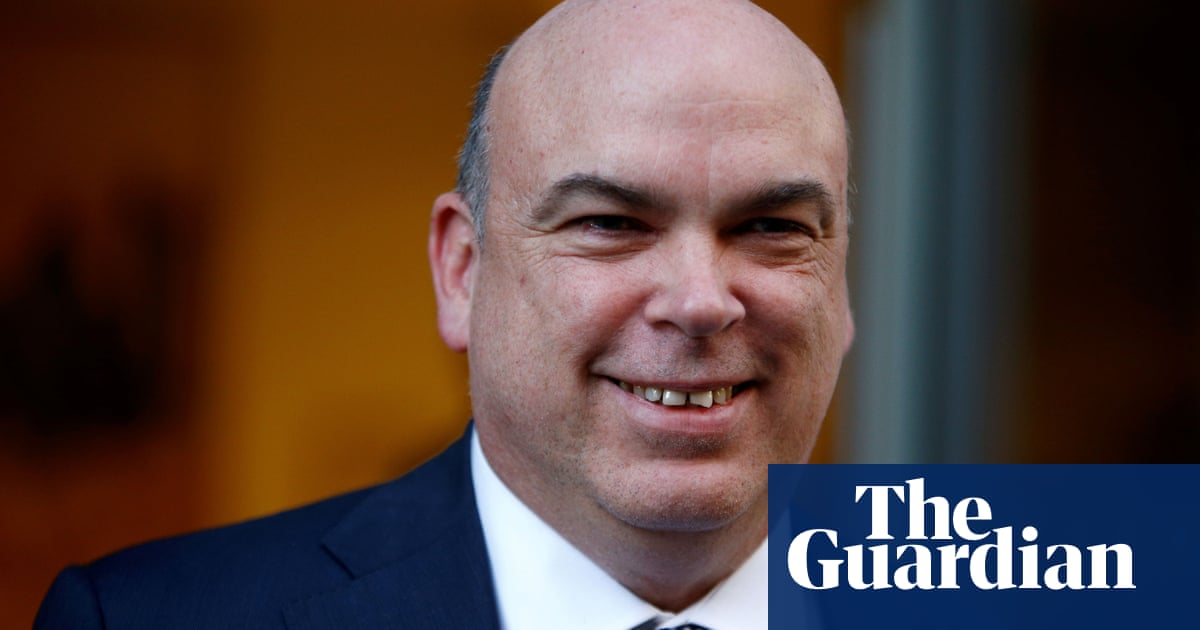A US jury has begun deliberating the fate of British technology entrepreneur Mike Lynch in a corporate fraud trial that began in March, as a years-long saga over a 2011 takeover deal comes to a close.
Lynch is charged with fifteen counts of fraud, although he originally had sixteen; a securities fraud charge was dismissed last week, marking a notable victory for his defense.
The charges stem from allegations that Lynch artificially inflated the numbers at his software company Autonomy ahead of an $11 billion acquisition deal with Hewlett-Packard. HP wrote down Autonomy’s value by $8.8 billion in 2012 after the company uncovered serious accounting irregularities.
The British technology magnate once hailed as “British Bill Gates” faces as much as 25 years in prison and was extradited to the US for the trial, which took place at a federal courthouse in San Francisco. Lynch has pleaded not guilty.
The 11-week trial exposed the alleged misdeeds of the businessman, who prosecutors say was the “driving force” behind a “massive” years-long fraud. Lynch’s team, meanwhile, argued that the case amounted to a “routine business dispute” that did not involve intentional misconduct.
After many days of arguments from opposing sides, including testimony from Lynch himself, here’s what we learned about the controversial case.
-
1. Prosecutors allege Lynch exhibited a pattern of intimidation
Throughout the trial, prosecutors tried to portray Lynch as a ruthless businessman who “told a fantastic story of business success” to trick HP into making a bad deal.
To that end, they interviewed witnesses about evidence of a mafia-like business culture at Autonomy, citing everything from the presence of piranhas in the office aquarium to meeting rooms named after James Bond villains to characterize the director as a tough, threatening boss .
On the stand, Lynch tried to humanize himself, discussing his childhood in England and the exciting rise of his company. He matter-of-factly explained business decisions at Autonomy, arguing that he had no direct hand in the alleged fraud in question.
In closing, Assistant U.S. Attorney Robert Leach told jurors there should be no reasonable doubt that fraud occurred at Autonomy, and that Lynch was in charge. He emphasized that Lynch had made £500 million ($640 million) from the HP deal, and told jurors to follow the money.
“Dr. Lynch had 500 million reasons to defraud HP,” he said. “It tells you volumes about who was in charge and who benefited from it.”
-
2. Decades-old memories provide vague evidence: ‘I can’t give you a specific date’
The lawsuit centers on Hewlett-Packard’s 2011 acquisition of Autonomy and the alleged fraudulent actions taken by Lynch in the lead-up. Crucially, U.S. District Judge Charles Breyer ruled that the lawsuit did not address post-acquisition actions. The defense has criticized the decision because Lynch has long maintained that the financial problems Autonomy faced were the result of HP’s mismanagement.
Because the proceedings focused on allegations that Lynch deliberately inflated the company’s revenues to lure buyers beginning in 2009, much of the trial involved witnesses being forced to recall business details, accounting decisions and conversations from fifteen years ago .
“I can’t give you a specific date with certainty,” a former Autonomy employee said in early testimony. That sentiment was echoed throughout the proceedings, with Lynch himself saying on the stand that it was “surreal” to watch “a parade of witnesses.” [he’s] never met” describe decisions in which he was not involved.
-
3. Lynch’s team has claimed the process is unfair
The legal proceedings became controversial at some points, with Lynch’s defense team at one point demanding a mistrial based on “egregious” and “highly inappropriate” prosecutorial conduct.
In that interrogation, which according to the defense “was tainted with deliberate misconduct that was highly detrimental to Dr. Lynch,” prosecutors indirectly suggested that Lynch had been extradited for the proceedings. The only way for Lynch to address such references, the defense argued, would be to discuss events after the takeover – which the judge ruled out. This effective “hamstr[u]ng his fundamental rights to a fair trial,” the motion said.
Breyer denied the motion to dismiss, but acknowledged that the prosecutor’s questions were inappropriate and ordered the jury to exclude the questions and subsequent testimony from their deliberation.
Such defense language echoes the rhetoric used in the British trial of Autonomy executive Sushovan Hussain, whose lawyers called Hewlett-Packard’s case “exaggerated” and “unfair.”
Hussain was convicted separately in a 2018 trial in the same court on charges of conspiracy, bank fraud and securities fraud in connection with the HP deal. He was released from US prison in January after serving a five-year sentence.
-
4. Lynch argues that this is all just a big misunderstanding about the accounting differences between Britain and the US
Cultural, linguistic and business differences between the US and Britain emerged as points of contention during the 12-week trial. Some of the cultural exchanges were comic in nature – Lynch explained British attitudes to the jury, including his use of the term ‘bean counters’ to refer to accountants in one company mission.
Others were more consequential, with the differences between US and UK accounting standards crucial to Lynch’s defence. Prosecutors called as a witness Ganesh Vaidyanathan, a former accounting director at Autonomy in the US, who testified about potential accounting issues he first raised within the company in 2010.
However, during their cross-examination of Vaidyanathan, attorneys sought to highlight the differences between International Financial Reporting Standards (IFRS), which was used at Autonomy, and Generally Accepted Accounting Principles (GAAP), the financial reporting standards largely used for U.S. financial reporting. -based companies.
Lynch’s team has long argued that the case is a “dispute over differences between UK and US accounting systems” and “certain business judgments”, and not an intentional fraud.
Reuters contributed report
